Key takeaways:
- Strong, unique passwords are essential for protecting online accounts; using a password manager simplifies this task.
- Linux enhances security through its permission system and open-source community, which actively addresses vulnerabilities.
- Regular maintenance, including updates and backups, is crucial for maintaining security in Linux systems.
- Being vigilant about phishing attempts and scrutinizing downloads can prevent potential scams and breaches.
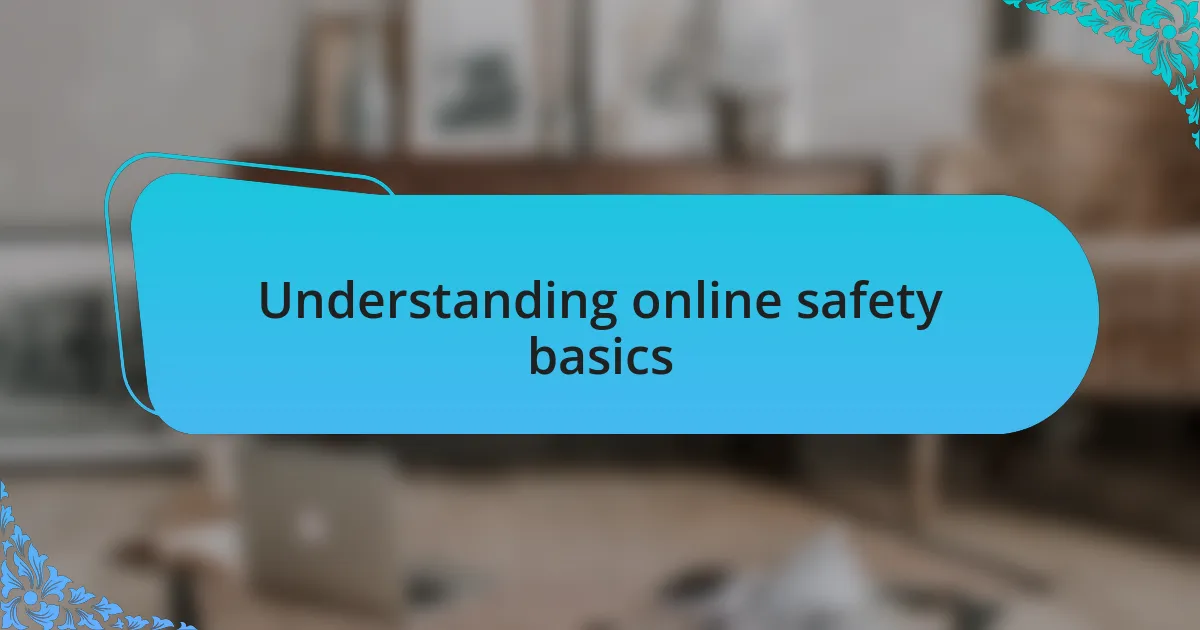
Understanding online safety basics
When I first ventured online, I often overlooked the importance of online safety. Back then, I thought that basic precautions, like using a simple password, would suffice. Little did I know that my naivety could put my personal information at risk, reminding me how vital it is to understand the fundamentals.
One essential aspect of online safety is recognizing the value of strong, unique passwords for each account. It’s astounding how many people reuse passwords across multiple sites. I once learned this the hard way when a single breach compromised my email and social media accounts. This experience taught me the significance of a password manager, which helped turn an overwhelming task into a more manageable one.
Additionally, it’s crucial to be aware of phishing attempts, often disguised as legitimate communications. Have you ever received an email that seemed suspicious but looked genuine at first? I have, and it taught me to scrutinize every link and attachment. By taking the time to hover over links and look for red flags, I’ve been able to steer clear of potential scams, reinforcing my resolve to remain vigilant in the digital landscape.
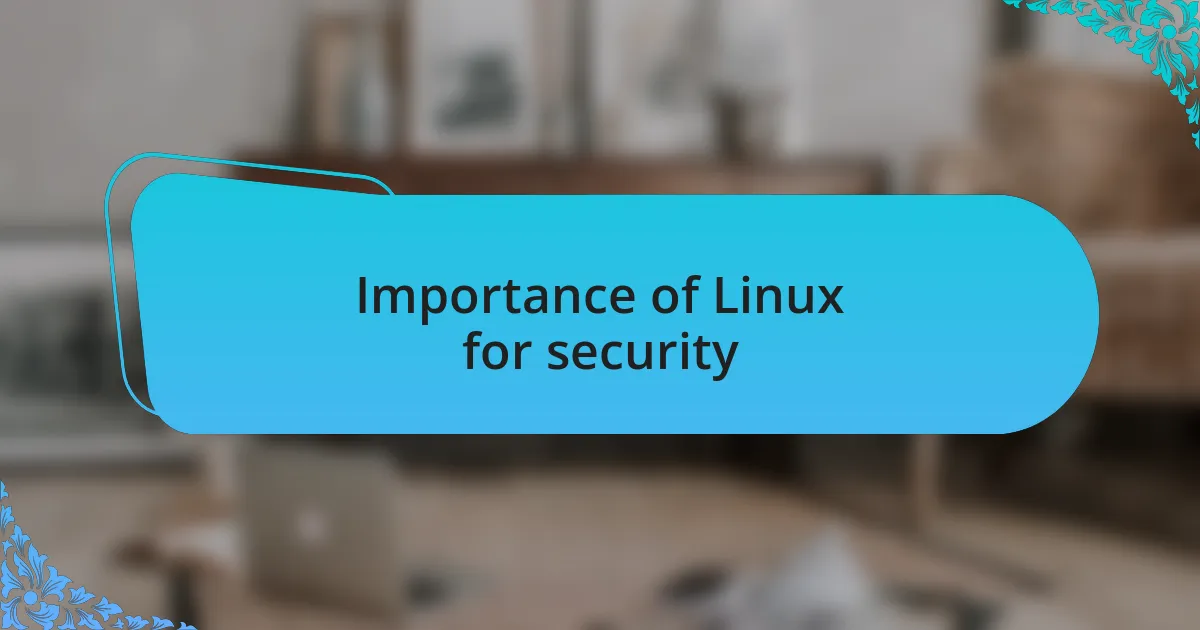
Importance of Linux for security
Linux is often hailed as a robust operating system for security-conscious users. I’ve experienced its enhanced security features firsthand, like its permission system that limits user access. This foundational principle not only minimizes the potential damage from malware but also reinforces the idea that security should be ingrained in the very structure of the OS.
Using Linux can feel like having a fortress around your data. For instance, I switched to using a Linux distribution for my personal projects, and I noticed a significant decrease in the malware alerts I used to get on other systems. It made me wonder—how much of our online safety can be attributed to the tool we choose daily?
Moreover, the open-source nature of Linux allows a community of developers to scrutinize and enhance its security continuously. I remember a time when I discovered a vulnerability in a piece of software I was using. Thanks to the community forums, the bug was quickly addressed and patched. This collective vigilance not only empowers users but also fosters an environment of trust, making Linux a top choice for anyone serious about online safety.
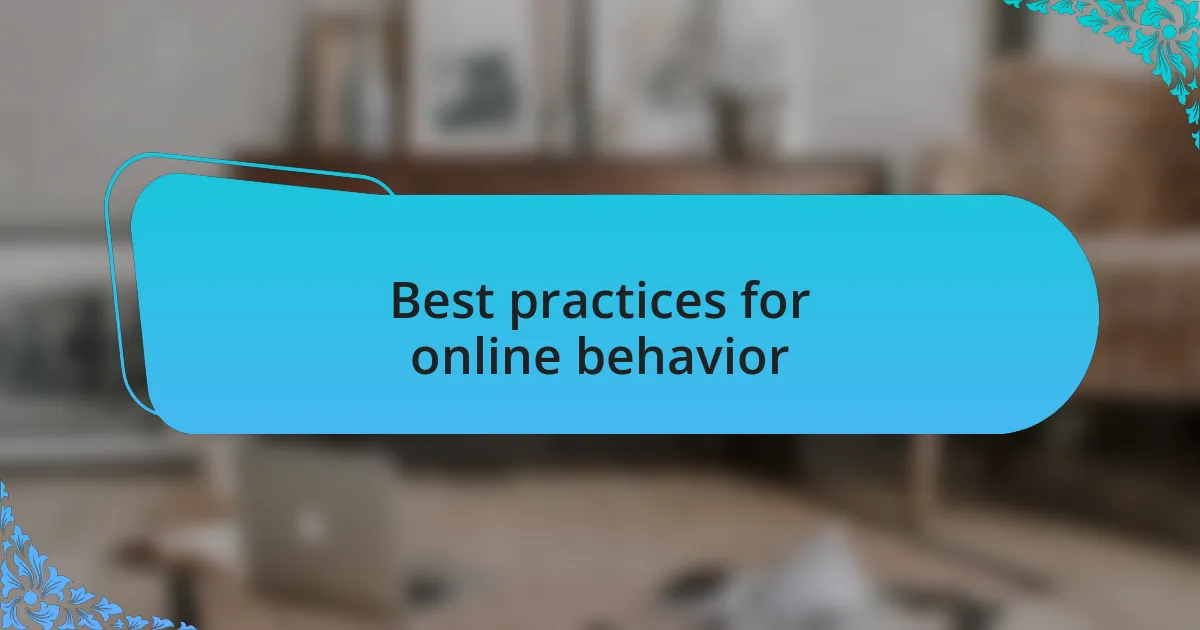
Best practices for online behavior
When browsing the internet, I always prioritize using strong, unique passwords for each account. I still recall the moment I transitioned to a password manager; it felt as if I had lifted a weight off my shoulders. Instead of struggling to remember different credentials, I could focus on what truly mattered, knowing my accounts were secure against potential breaches.
Another crucial practice I’ve adopted is being cautious about the links I click and the files I download. I remember a time I almost fell for a phishing scam that appeared legitimate. It made me realize how easily we can be misled; a simple email masquerading as a trusted source can have serious repercussions. Now, I always hover over links to check their authenticity before taking the plunge.
Engaging with community forums and security blogs is another habit that pays off immensely. I’ve benefited greatly from sharing experiences and learning from others who face similar challenges. It’s intriguing how a shared insight can illuminate a potential threat or provide practical advice that enhances my online behavior—like discovering better settings for my browser that significantly improve my security. What practices do you follow to stay informed and vigilant in an ever-evolving digital landscape?
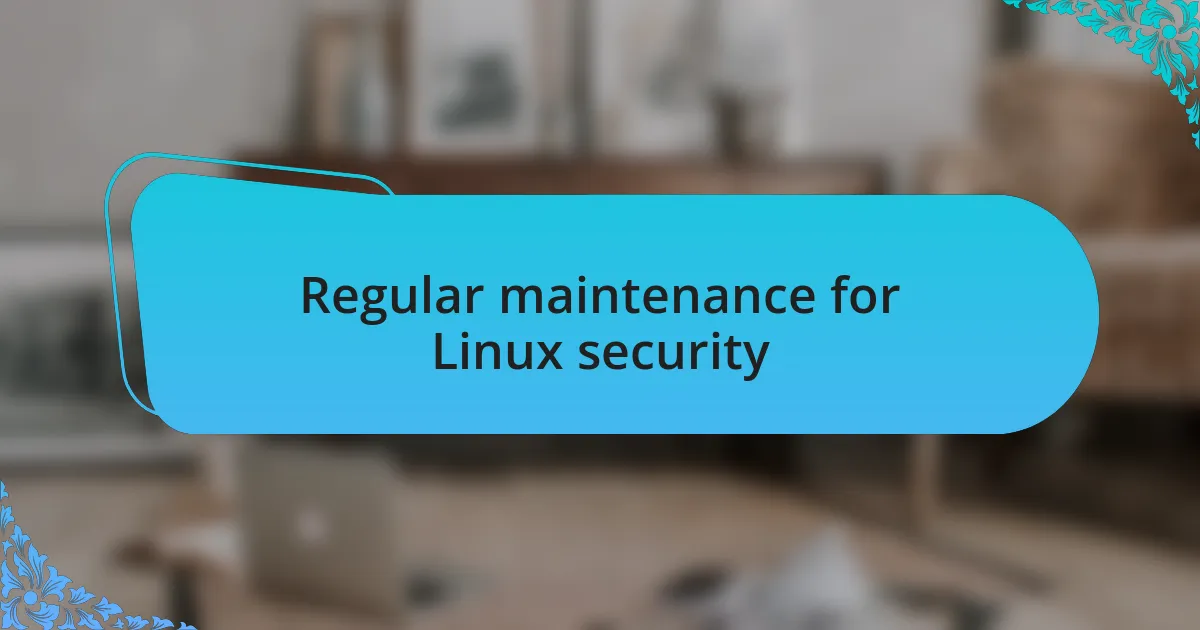
Regular maintenance for Linux security
Regular maintenance is crucial for maintaining robust security in Linux systems. One routine I incorporate is updating the operating system and installed packages regularly. I remember a time when I overlooked updates, and shortly after, a major vulnerability was disclosed that could have compromised my system. Implementing automatic updates not only saves me the hassle of manual checks but also ensures I’m protected from newly discovered threats.
Monitoring system logs is another practice I find invaluable. It might sound tedious, but taking just a few minutes each week to review log files can reveal unusual activities that deserve attention. I once stumbled upon a series of failed login attempts that helped me pinpoint a potential breach before it escalated. Have you thought about what your logs might be saying about the activity on your system?
Lastly, I’ve made it a routine to conduct regular backups of crucial data. There was a moment in my early Linux days where a system failure left me scrambling to recover lost files. Now, with my backup strategy in place, the sigh of relief I feel knowing my data is secure is palpable. How often do you evaluate your backup solutions?
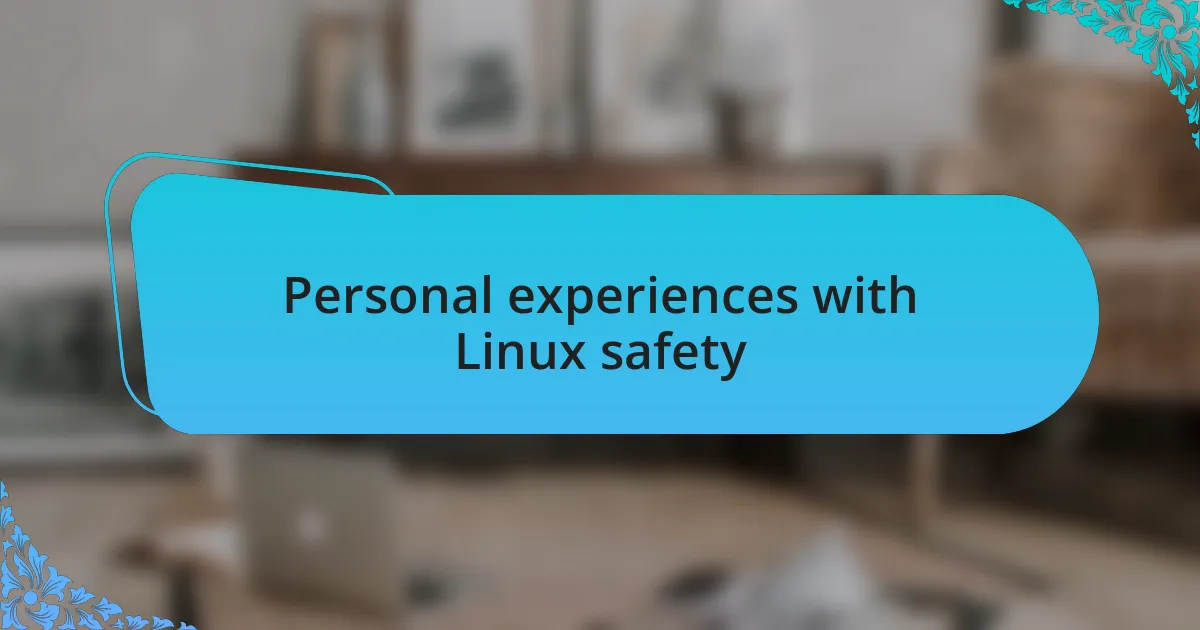
Personal experiences with Linux safety
In my experience with Linux safety, one of the most eye-opening moments came when I tried out a new piece of software without thoroughly vetting it. Unfortunately, it turned out to be riddled with vulnerabilities that could have exposed my system. I learned the hard way that not every application is created equal, and now I always conduct a little background research before installing anything new. Have you ever been caught off guard by software you thought was safe?
Another memorable incident was when I mistakenly shared sensitive data over an unsecured network. I had been too casual, assuming my Linux firewall settings were sufficient. After that scare, I took the time to educate myself about network security best practices. It was a wake-up call that taught me the importance of vigilance—and I now double-check my connection type every time I access my system remotely.
Lastly, I can’t emphasize enough how beneficial using strong, unique passwords has been in my Linux use. There was a time when I relied on the same simple password across different accounts, which led to a near miss when one of my accounts was compromised. Transitioning to a password manager not only streamlined my routine but also added an essential layer of security that gives me peace of mind. Have you evaluated your passwords lately?